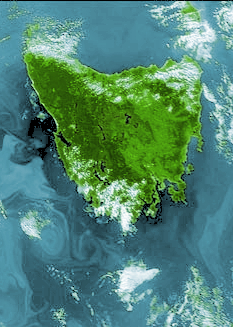Tas. warming effects observed
 Scientists say global warming may have already impacted Tasmanian ocean ecosystems.
Scientists say global warming may have already impacted Tasmanian ocean ecosystems.
Tasmanian ocean ecosystems have seen major change over recent decades as a result of increasing ocean temperatures, according to Australian researchers.
A team from the University of Tasmania and CSIRO has looked at how fish, macroinvertebrates and algae populations have changed over the past 27 years across nearly 100 reef sites.
Based on standardised visual surveys of reef biodiversity, the researchers say they have obtained decades of detail about community-level change for fishes, mobile macroinvertebrates and macroalgae in the Tasmanian ocean-warming hotspot.
Overall, fish biomass increased, macroinvertebrate species richness and abundance decreased, and macroalgal cover decreased, particularly during the most recent decade.
At the same time, the researchers say these sites have seen an average of 0.8 degrees Celsius of warming.
Additionally, they found increased abundances of fish and invertebrates known to prefer warmer waters that accompanied the ocean warming during the most recent decade (+0.68°C rise).
Luckily, they say that higher abundances of larger fishes and lobsters inside reserves appeared to negate impacts of ‘thermophilization’ - where communities are increasingly dominated by species from warmer areas.
The full study is accessible here.







 Print
Print